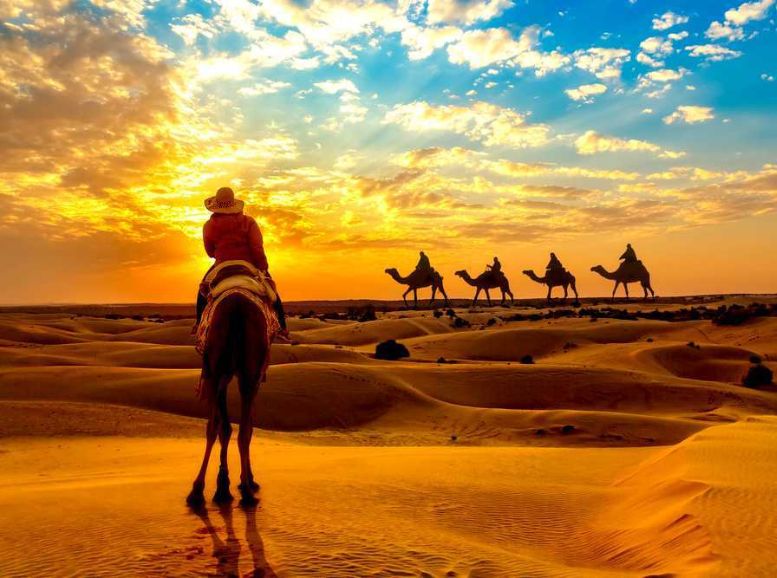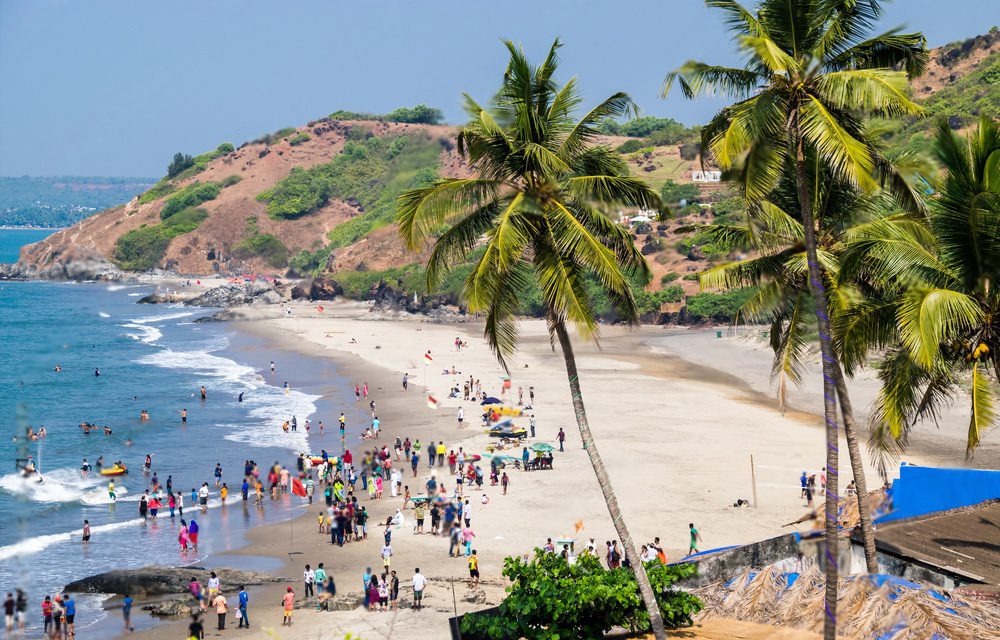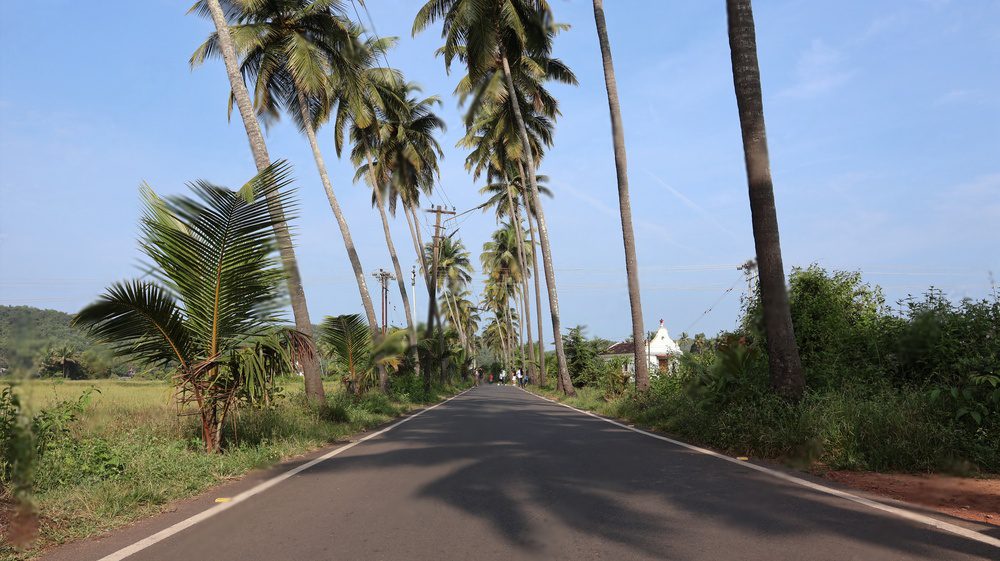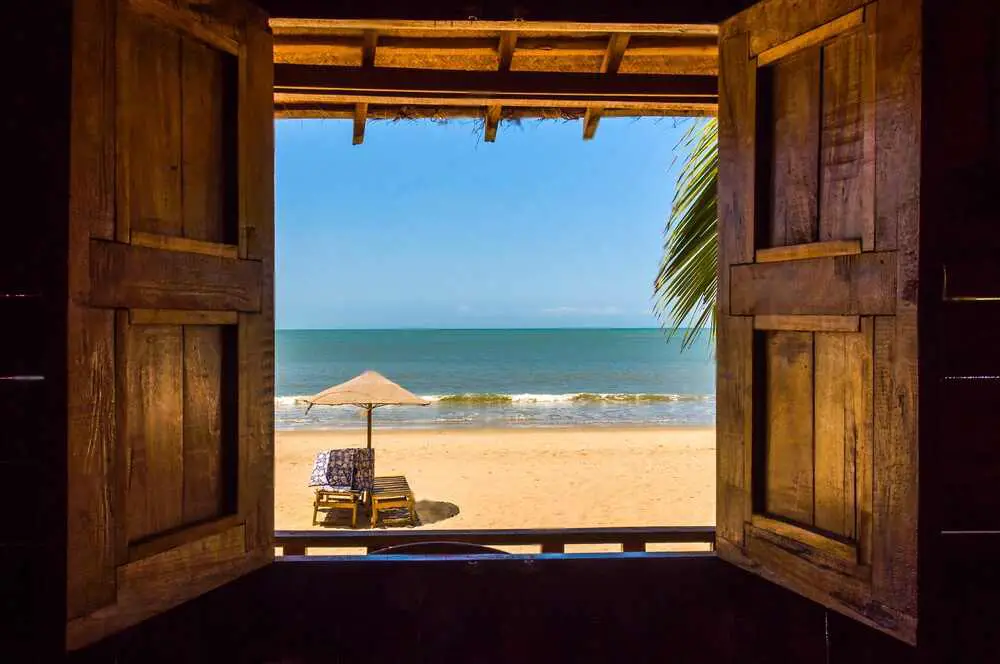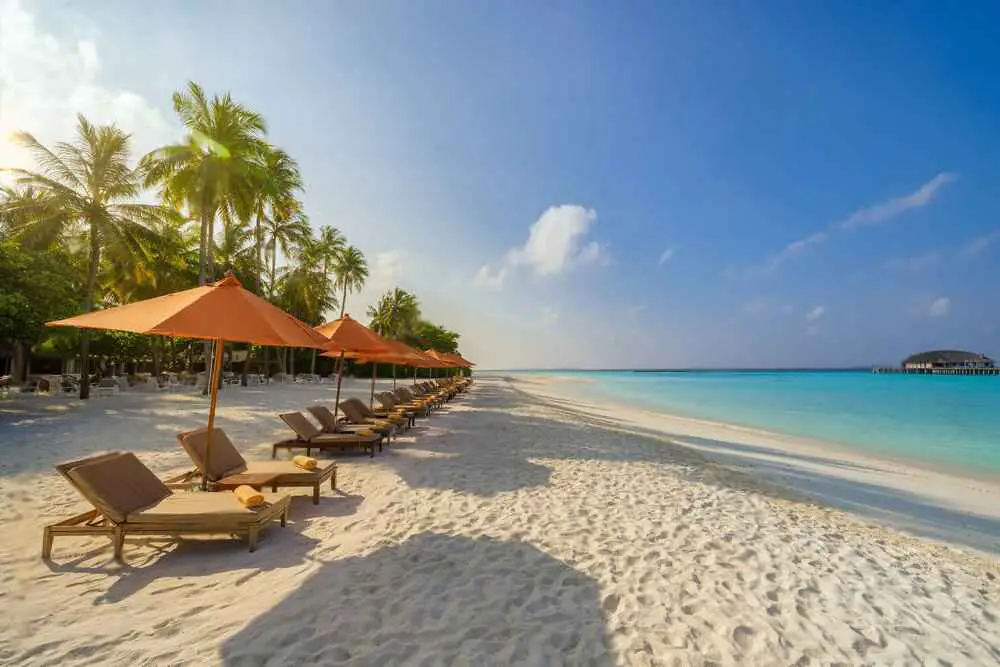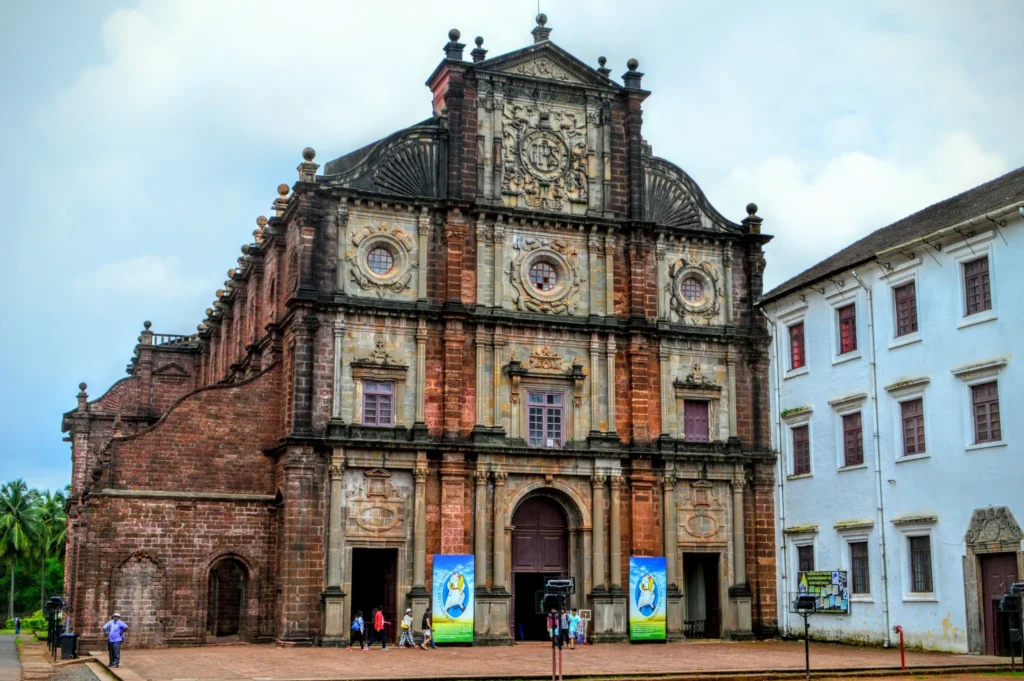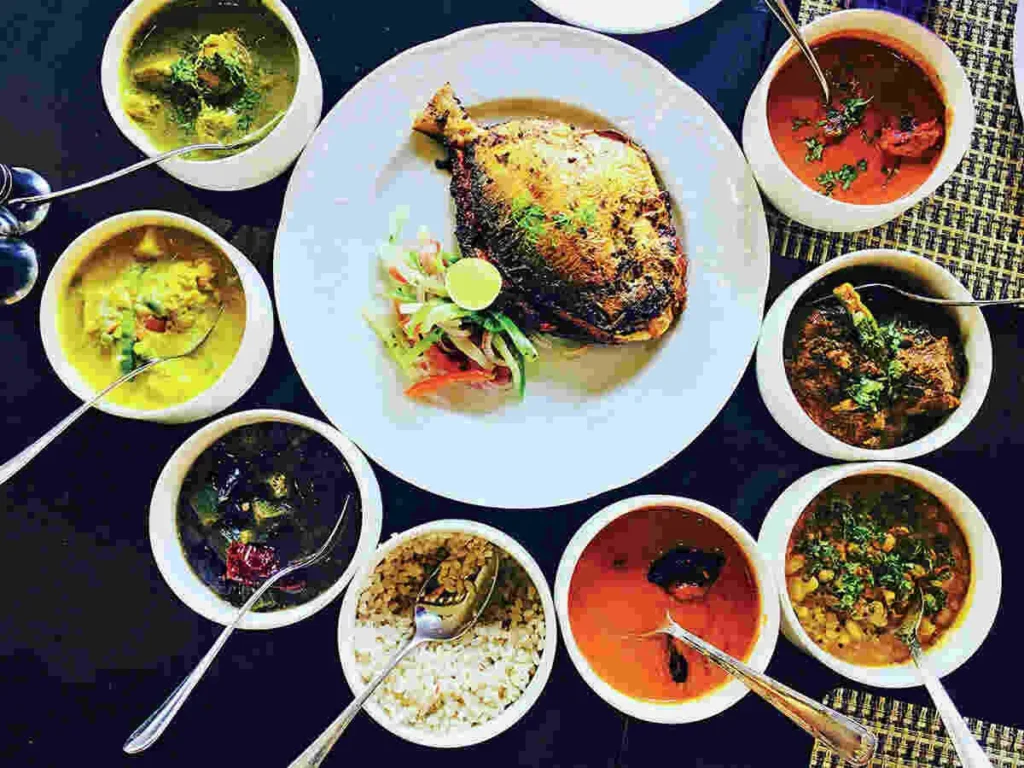Jaisalmer rises from the heart of the Thar Desert, a captivating city sculpted from warm yellow sandstone. This timeless tapestry isn’t just another destination; it’s a vibrant blend of rich history, pulsating culture, and the undeniable warmth of its people. Beyond the iconic fort walls, intricate Jain temples and bustling bazaars hint at the unforgettable adventures waiting to be unraveled. Prepare to be dazzled by the golden hues of the desert sunset, tantalized by the aromatic flavors of Rajasthani cuisine, and captivated by the labyrinthine streets where every corner whispers secrets of a bygone era.
How to reach:
- Soaring Through the Skies: While Jaisalmer boasts its own domestic airport (JSA), it has limited commercial flights. Most travelers opt to fly into Jodhpur Airport (JDH), roughly 285 kilometers away. From Jodhpur, taxis, buses, and trains connect you to Jaisalmer.
- Riding the Rails: Jaisalmer Junction (JSM) offers a convenient and affordable option. This railway station boasts connections to major Indian cities, making train travel a comfortable way to reach the heart of the desert.
- Hitting the Road: For the adventurous soul, a road trip to Jaisalmer via India’s national highways can be an unforgettable experience. The distance from Gorakhpur is approximately 1384.5 kilometers. Generally good road conditions allow you to soak in the beauty of the Indian countryside at your own pace.
Best time to visit:
Winter: (November – March)
Winter transforms Jaisalmer into a haven for exploration. This peak season boasts comfortable temperatures between 10°C and 27°C, making sightseeing and outdoor activities a delight. Imagine basking in the golden desert sun as you explore the majestic Jaisalmer Fort or embark on a thrilling jeep safari through the Thar dunes.
Shoulder Season: (September – October)
The monsoon season in Jaisalmer brings minimal rainfall, offering a chance to experience the city with fewer crowds. Temperatures range from 19°C to 33°C, with potentially humid days balanced by pleasant evenings. This shoulder season allows you to discover Jaisalmer’s hidden gems and bustling bazaars at a more relaxed pace, often with budget-friendly travel options available.
Summer: (April – June): Not for Everyone
Jaisalmer’s summers are scorching, with temperatures soaring above 40°C. While sightseeing becomes challenging under the relentless sun, this period can be suitable for those seeking solitude and the most affordable travel deals. However, be prepared for the intense heat and plan your activities accordingly.
Attractions:
Jaisalmer Fort:
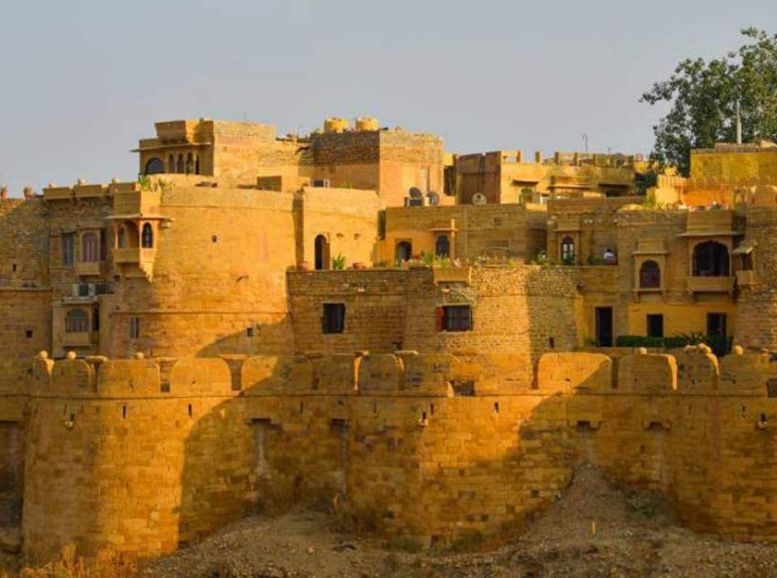

Standing tall amidst the golden sands, Jaisalmer Fort, also known as Sonar Quila (Golden Fort), is the crown jewel of the city. This UNESCO World Heritage Site, built in the 12th century, is one of the largest forts in Rajasthan. A labyrinth of palaces, temples, and courtyards, the fort offers a captivating glimpse into Jaisalmer’s rich history. Wander through its intricate carvings, climb to the ramparts for breathtaking panoramic views, and be transported back in time as you explore this majestic structure.
Jain Temples:
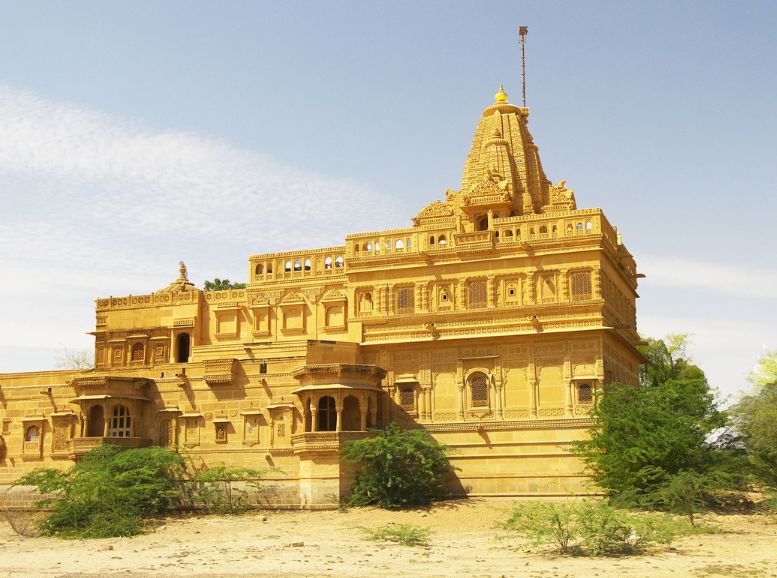

Jaisalmer boasts some of the most stunning Jain temples in India. Dating back to the 12th and 15th centuries, these intricately carved temples are architectural marvels. Dedicated to the Jain religion, they are renowned for their exquisite craftsmanship, delicate pillars, and mesmerizing sculptures. The most prominent Jain temples include the Chintamani Parasnath Temple, the Mahavir Jain Temple, and the Rikhab Devji Jain Temple, each offering a unique experience for visitors.
Havelis:
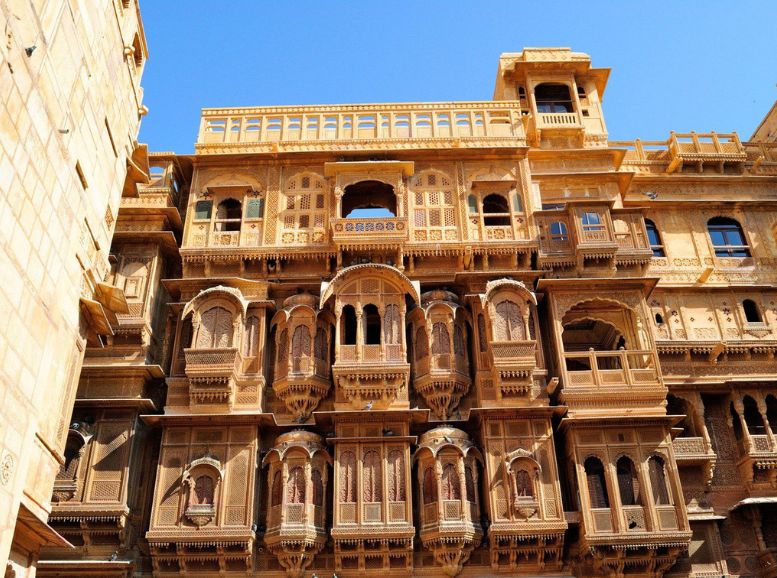

Havelis, ornate mansions built by wealthy merchants, are another architectural gem of Jaisalmer. Constructed from yellow sandstone and adorned with intricate carvings and latticework, these grand structures offer a glimpse into the opulent lifestyle of Jaisalmer’s bygone era. Some of the most prominent Havelis include Patwon-ki-Haveli, Salim Singh-ki Haveli, and Nathmal-ki Haveli, each showcasing a unique blend of architectural styles and craftsmanship.
Gadisar Lake:
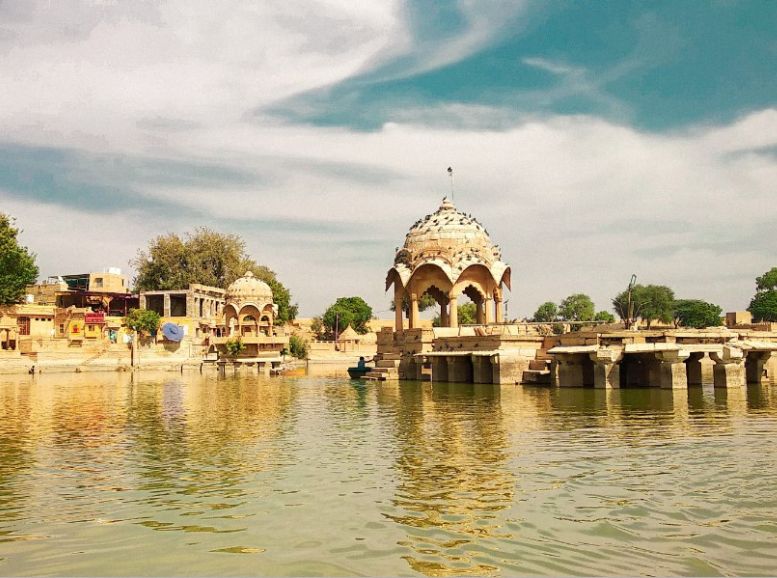

Located in the heart of the city, Gadisar Lake is a man-made reservoir built in the 12th century. This serene oasis serves as a vital source of water for the city and is a popular spot for locals and tourists alike. Enjoy a peaceful boat ride on the lake, capture stunning reflections of the Jaisalmer Fort in its waters, or simply relax on its banks and soak in the tranquil atmosphere.
Desert Safari:
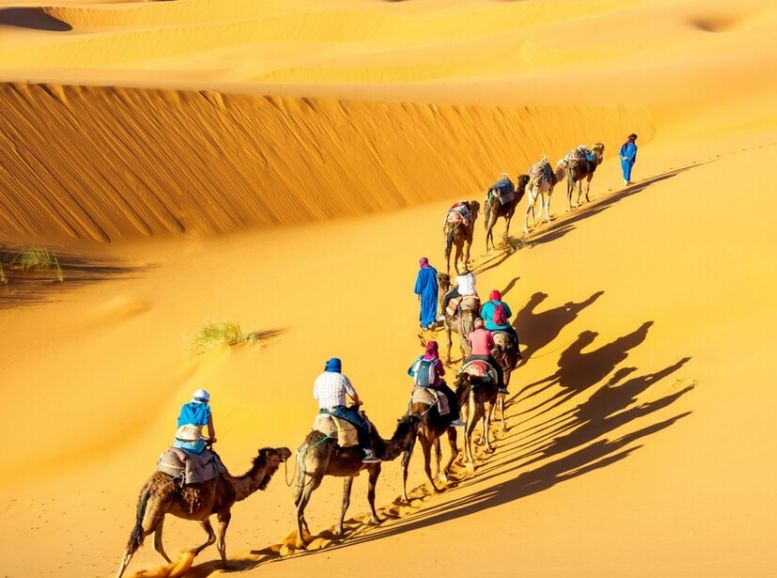

A trip to Jaisalmer is incomplete without experiencing the thrill of a desert safari. Embark on a jeep adventure through the golden Thar Desert, explore the vast sand dunes, and witness the captivating sunset paint the sky in vibrant hues. For a truly unique experience, consider spending a night under the star-studded desert sky in a traditional desert camp.
Kuldhara:
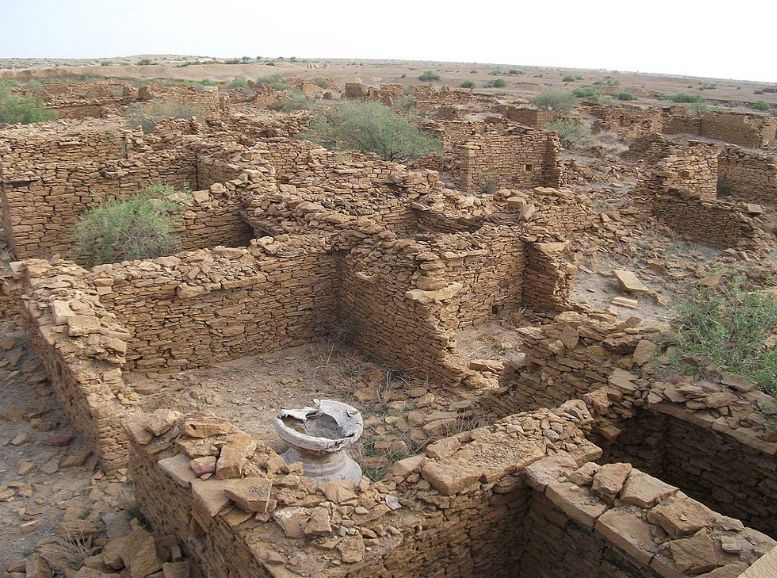

Kuldhara, an abandoned village located about 25 kilometers from Jaisalmer, is shrouded in mystery. Once a prosperous village, it’s believed to have been deserted by its inhabitants overnight centuries ago. The reason behind this sudden exodus remains unknown, adding to the village’s eerie charm. Explore the deserted houses, learn about the local legends surrounding Kuldhara, and step back in time to this fascinating historical site.
Patwon ki haveli:
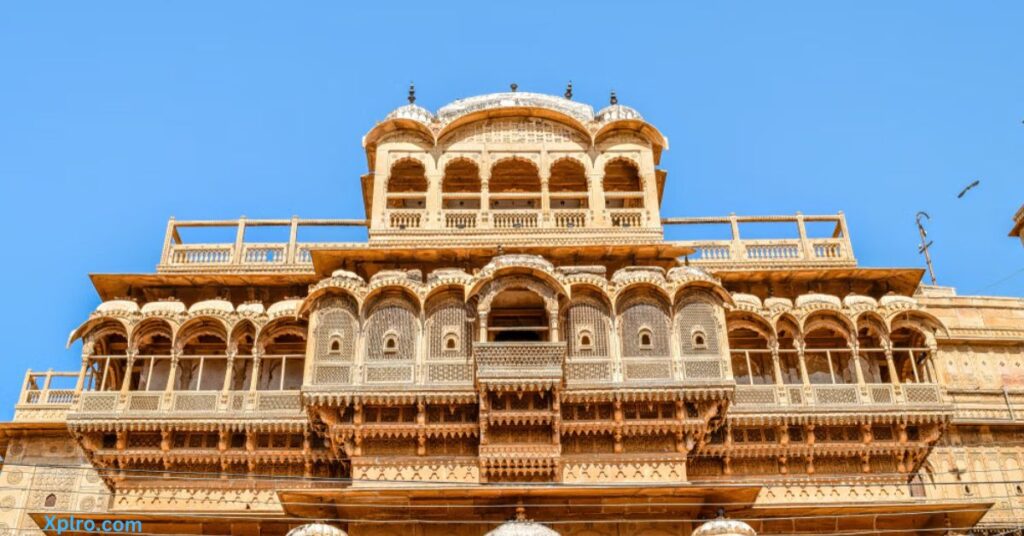

Sikkim’s first capital, Yuksom, weaves a captivating tapestry of natural splendor, rich culture, and spiritual serenity. From the tranquility of Khecheopalri Lake to the ancient whispers of Dubdi Monastery, Yuksom caters to every explorer. Trek challenging landscapes, delve into vibrant markets, or simply find peace in the Himalayas’ embrace. Explore captivating scenery, historic sites, and be welcomed by the warmth of the local community. Yuksom promises an unforgettable journey of discovery – let Xplro.com be your guide to unlocking Sikkim’s breathtaking beauty and profound heritage.
Bada bagh:
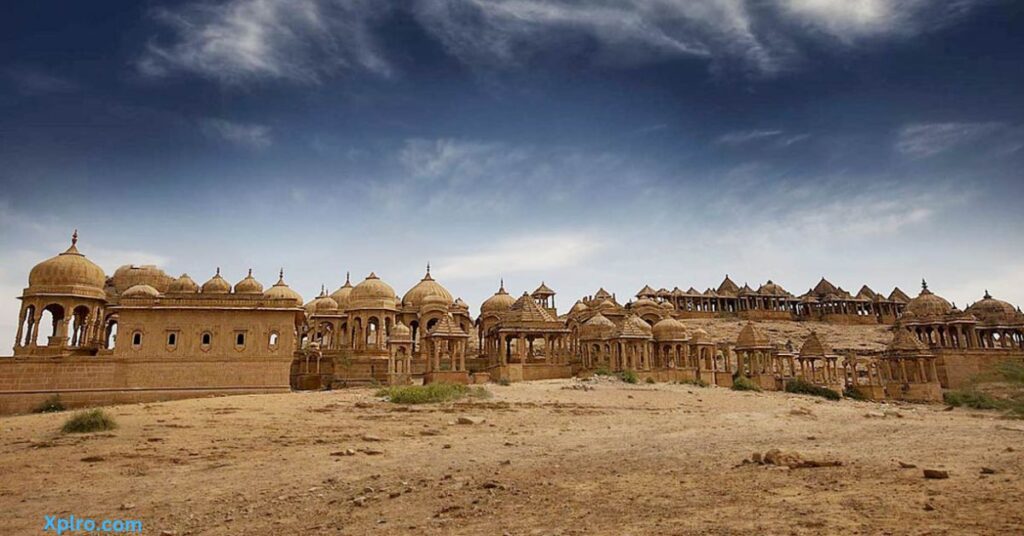

Just outside Jaisalmer, Bada Bagh, meaning “Big Garden,” unfolds as a serene sanctuary rich in royal heritage. Carved sandstone cenotaphs, chhatris, dedicated to Jaisalmer’s Bhatti rulers, grace the landscape against a backdrop of both verdant gardens and stark desert, creating a mesmerizing contrast. The tranquil atmosphere and architectural splendor make it a perfect place to reflect, especially at sunrise or sunset when a warm glow bathes the chhatris, offering a glimpse into Jaisalmer’s royal past and a peaceful retreat for the soul..
Salim Singh ki haveli:
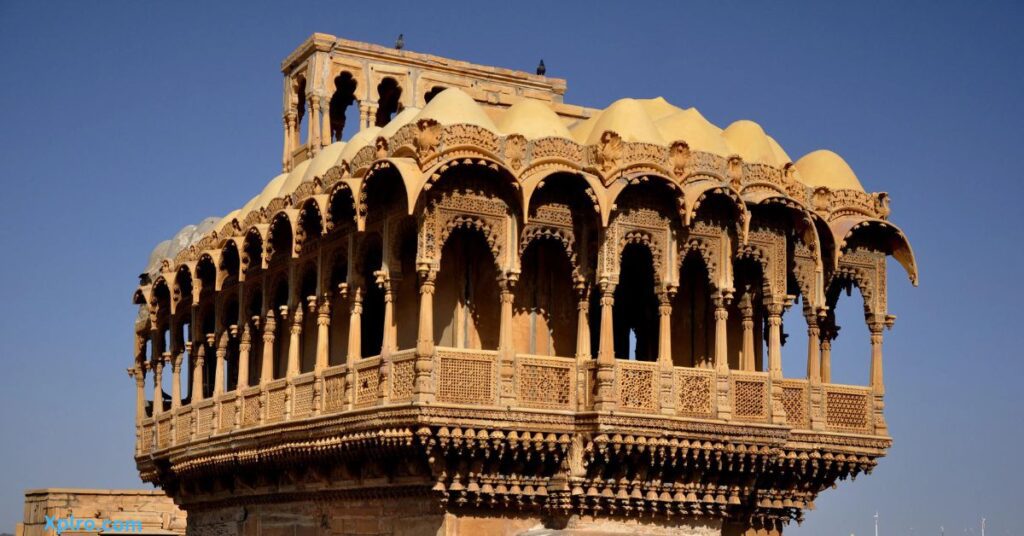

Jaisalmer’s architectural crown jewel, Salim Singh ki Haveli, whispers tales of opulence and bygone ingenuity. Built by the city’s 18th-century Prime Minister, Salim Singh, this haveli stuns with its distinctive design. The most striking feature? A majestic arched roof that soars like a peacock’s fanned feathers. Meticulously carved facades adorned with intricate patterns and a symphony of 38 unique balconies showcase the exceptional craftsmanship of the era. Inside, vibrant murals, elaborate mirror work, and ornate wooden ceilings hint at the luxurious lives once lived here. Salim Singh ki Haveli is more than a monument; it’s a captivating portal to Jaisalmer’s rich cultural heritage, a must-visit for anyone seeking a brush with history and a touch of wonder.
Local experiences:
- Become a Spice Master: Embark on a unique culinary adventure with a local spice tour. Explore the bustling aroma-filled markets, learn about the secrets behind Rajasthani cuisine’s vibrant flavors, and unleash your inner chef with a traditional cooking class. Prepare a mouthwatering meal under the guidance of a local expert and savor the authentic flavors of Jaisalmer.
- Witness the Art of Embroidery: The Thar Desert boasts a vibrant tradition of embroidery. Seek out skilled artisans and witness them create intricate designs on textiles using colorful threads. Learn about the history and techniques of this age-old craft, and perhaps even try your hand at creating your own embroidered souvenir, a unique piece of Jaisalmer’s artistic heritage.
- Camel Safari: Experience the Thar Desert like a local on a traditional camel safari. These gentle giants have been a mainstay of desert life for centuries. Embark on a slower-paced journey through the sand dunes, soak in the breathtaking desert scenery, and connect with the timeless traditions of the Thar.
- Dine Under the Stars: Escape the city lights and immerse yourself in the magic of a desert night. Indulge in a traditional Rajasthani meal under a blanket of stars at a desert camp. Listen to captivating folk music performances by local artists, witness mesmerizing dances that tell stories of the land, and create unforgettable memories under the vast desert sky.
- Witness a Local Festival: Jaisalmer comes alive throughout the year with vibrant festivals celebrating culture, religion, and harvest. Plan your trip to coincide with a local festival like the Desert Festival of Jaisalmer or the Maru Thar Desert Festival. Immerse yourself in the colorful processions, traditional music and dance performances, and the joyous energy of these celebrations.
Travel tips:
- Dress for the Weather: Jaisalmer’s climate varies. Pack breathable cotton clothes and comfortable walking shoes for the hot days. During winter (November to March), bring light woolens for chilly evenings. If you plan a desert safari, a headscarf or hat and sunglasses are essential for sun and sand protection.
- Respectful Attire: Jaisalmer is a conservative city. Opt for modest clothing, especially at religious sites. Loose-fitting clothing that covers shoulders and knees is ideal for women.
- Getting Around: Jaisalmer is compact, and much of the city center is explorable on foot. For longer distances or hot weather, consider rickshaws, readily available and affordable. Taxis are also an option for a more comfortable ride.
- Public Transport: Jaisalmer has a limited public bus network, serving nearby towns and villages affordably. However, rickshaws and taxis are more convenient for exploring the city itself.
- Mindful Travel: Be mindful of local customs and traditions. Photography inside temples may be restricted, so ask for permission before snapping pictures. Dress modestly, especially at religious sites.
- Hydration is Key: The desert heat can be dehydrating. Carry a reusable water bottle and stay hydrated throughout the day, especially during outdoor activities. Avoid tap water; opt for bottled or filtered water.
- Bargaining Basics: Bargaining is common in the bazaars. Do some research to have a general idea of prices, and be prepared to have fun with the friendly haggling!
- Local Currency: The Indian Rupee (INR) is the official currency. ATMs are available, but carrying cash is wise for smaller purchases and transportation.
- Tipping Etiquette: Tipping isn’t mandatory, but a small tip for waiters, guides, or porters is appreciated if you’re happy with the service.
- Internet Access: Most hotels and cafes offer Wi-Fi, though speeds may vary. Consider purchasing a local SIM card for reliable internet access throughout your trip.
- Phone Considerations: If you plan on using your phone in India, check with your mobile carrier beforehand to activate international roaming. Alternatively, purchasing a local SIM card can be a more affordable option.
Conclusion
Jaisalmer’s magic lingers long after you depart. From the fort’s imposing silhouette to the havelis’ exquisite details, and the desert’s captivating landscapes, the city offers an unforgettable tapestry of history, culture, and warm Rajasthani hospitality. Whether you crave adventure, cultural immersion, or a peek into a bygone era, Jaisalmer caters to all travel desires. To craft your dream Jaisalmer itinerary and ensure you experience the city’s best, explore Xplro.com and connect with their knowledgeable guides!
FAQ
- How many days should one allocate for exploring Jaisalmer?
- Typically, 2 to 3 days are ample for covering the main highlights, encompassing the fort, havelis, and a desert safari. However, extending your stay allows for a deeper immersion into the city’s culture and lifestyle.
- Is Jaisalmer a safe destination for tourists?
- This place generally maintains a safe environment for visitors. Nonetheless, it’s advisable to exercise standard precautions such as safeguarding belongings and avoiding isolated areas, especially at night.
- What delicacies is Jaisalmer renowned for?
- Jaisalmer boasts a delectable array of Rajasthani cuisine. Signature dishes include dal baati churma, ker sangri, gatte ki sabzi, and mirchi bada, enticing visitors with rich flavors and culinary traditions.
- Are camel safaris available in Jaisalmer?
- Indeed, Jaisalmer offers captivating camel safaris, allowing adventurers to traverse the expansive Thar Desert and immerse themselves in the rustic charm of Rajasthan’s landscape.
- What shopping opportunities are available in Jaisalmer?
- Jaisalmer presents a vibrant shopping scene featuring exquisite Rajasthani handicrafts, embroidered textiles, jewelry, leather goods, and more. Popular shopping destinations include the markets around the fort area and Sadar Bazaar.
- How can travelers reach Jaisalmer?
- Travelers can access Jaisalmer conveniently via air, rail, and road. The nearest airport is Jodhpur Airport, approximately 300 kilometers away. Additionally, the city has a well-connected railway station and regular bus services from major cities in Rajasthan and neighboring states.
- What is the historical significance of Jaisalmer Fort?
- Jaisalmer Fort, also known as Sonar Quila or Golden Fort, holds profound historical and architectural importance as one of the world’s largest fully preserved fortified cities and a designated UNESCO World Heritage Site.
- Are photography permissions required for Jaisalmer Fort?
- Visitors are generally allowed to take photographs in most areas of Jaisalmer Fort. However, it’s advisable to inquire about any restricted zones where photography may be prohibited.
- What lodging options are available in Jaisalmer?
- Jaisalmer offers a diverse range of accommodations catering to various budgets and preferences, including luxury hotels, heritage havelis, guesthouses, and desert camps, providing a distinctive experience amidst the dunes.
- What are some unique experiences to partake in Jaisalmer?
- In addition to mainstream attractions, travelers can indulge in offbeat experiences such as attending traditional Rajasthani folk music and dance performances, exploring local villages to witness rural life, or discovering ancient stepwells (baoris) scattered across the city.
